Who Should Take Cisco Certification Exams?
Update time:2025-09-10
Cisco certifications don’t have strict requirements like degree, major, or work experience.But “eligible to take” and “suitable to take” are two very different things.The real condition is whether your career goals and current foundation align with the certification track.

Let’s break down who Cisco certifications are most suitable for, and how different groups should prepare.
1.Four Types of People Best Suited for Cisco Certification
(1)Beginners / Fresh Graduates → Using CCNA as a “Door Opener”
If you’re a recent graduate or switching from a non-IT field (e.g., admin, sales), Cisco Certification — especially CCNA — is one of the most cost-effective ways to enter the networking field.
Employers hiring junior network engineers worry most about hiring “a complete novice who can’t work independently.”CCNA proves you’ve systematically studied networking fundamentals and can handle small-to-medium networks and simple troubleshooting.That’s much stronger than just writing “self-taught Linux” on a resume.
Exam choice: Start with CCNA (routing, switching, security basics, wireless intro).
Preparation tip: 1.5–2 months, 1.5–2 hours per day.Focus on TCP/IP, OSPF, basic BGP.Use simulators and dumps to understand why a configuration works instead of memorizing commands.

(2)Junior IT Operators → Using CCNP to “Level Up”
If you’ve been in IT for 1–2 years, mainly doing tasks like reinstalling systems or basic troubleshooting, but want to move into mid-level network operations, Cisco certification can help you break through.
At this stage, the missing piece is enterprise-level networking skills — things like setting up VPNs across departments, troubleshooting routing problems, or automating device management.
Exam choice: If you already have CCNA, go for CCNP (1 core + 1 concentration exam).If not, start with CCNA first.

(3)Career Switchers → Using Certifications as a “Transition Bridge”
If you’re currently in desktop support, software development, or another IT role but want to switch to network security or data centers, Cisco certification provides a structured path.
The biggest challenge in career switching is “lack of relevant experience.”Cisco certifications solve that with clear specializations:
Switching to Security → Start with Security CCNA, then CCNP Security.
Switching to Data Center → Start with Data Center CCNA, then CCNP Data Center.

(4)Experienced Engineers → Using CCIE as a “Passport to High-Level Roles”
If you already have 3+ years in networking and can manage enterprise-level systems, but want to move into architecture roles or join top-tier companies, CCIE is the ultimate credential.
High-level positions expect professionals who can design architectures and resolve complex failures.The CCIE’s 8-hour lab simulates real-world projects — passing it demonstrates expert-level ability.
Exam choice: Go straight for the relevant CCIE track (written + lab).
Preparation tip: 6–12 months, 3 hours per day.The key is lab practice.Use lab-oriented dumps to drill troubleshooting.Intentionally create faults (e.g., routing loops + ACL conflicts) and practice locating them fast.
2.Who Is Not Suitable (At Least for Now)
Non-IT professionals with no career link to networking (e.g., admin, finance): Certification won’t add real career value.
Highly experienced engineers with equivalent top-level certifications : CCIE adds little unless specifically required.
3.Common Misconceptions
Myth 1: “I’m not a computer major, I can’t learn this.”
→ Wrong.Cisco certs test practical networking, not heavy theory.With consistent study, anyone can learn.
Myth 2: “Poor English will stop me.”
→ Wrong.Exam questions use standard networking terms (OSPF, BGP, VLAN).Memorizing terms is enough.
Myth 3: “I need real hardware.”
→ Wrong.Simulators and online dumps are sufficient for hands-on practice.
4.Conclusion: It’s About Goals, Not Hard Conditions
Cisco certifications are tools to achieve career breakthroughs:
Want to enter the industry → Start with CCNA
Want to advance from junior to mid-level → Go for CCNP
Want to switch fields → Choose the relevant specialization
Want to target high-level/expert roles → Aim for CCIE
There are no rigid “requirements” to sit for the exams — only whether the certification aligns with your career goals.Don’t worry about having a weak foundation.Follow the step-by-step path (CCNA → CCNP → CCIE), use updated dumps , and progress steadily.That’s far more effective than blindly chasing advanced certs without preparation.

Let’s break down who Cisco certifications are most suitable for, and how different groups should prepare.
1.Four Types of People Best Suited for Cisco Certification
(1)Beginners / Fresh Graduates → Using CCNA as a “Door Opener”
If you’re a recent graduate or switching from a non-IT field (e.g., admin, sales), Cisco Certification — especially CCNA — is one of the most cost-effective ways to enter the networking field.
Employers hiring junior network engineers worry most about hiring “a complete novice who can’t work independently.”CCNA proves you’ve systematically studied networking fundamentals and can handle small-to-medium networks and simple troubleshooting.That’s much stronger than just writing “self-taught Linux” on a resume.
Exam choice: Start with CCNA (routing, switching, security basics, wireless intro).
Preparation tip: 1.5–2 months, 1.5–2 hours per day.Focus on TCP/IP, OSPF, basic BGP.Use simulators and dumps to understand why a configuration works instead of memorizing commands.
(2)Junior IT Operators → Using CCNP to “Level Up”
If you’ve been in IT for 1–2 years, mainly doing tasks like reinstalling systems or basic troubleshooting, but want to move into mid-level network operations, Cisco certification can help you break through.
At this stage, the missing piece is enterprise-level networking skills — things like setting up VPNs across departments, troubleshooting routing problems, or automating device management.
Exam choice: If you already have CCNA, go for CCNP (1 core + 1 concentration exam).If not, start with CCNA first.
Preparation tip: 3–4 months, 2 hours per day.Use scenario-based dumps .For example, if the question describes “frequent branch disconnections,” you should be able to connect that to possible routing misconfigurations or redundancy issues.
(3)Career Switchers → Using Certifications as a “Transition Bridge”
If you’re currently in desktop support, software development, or another IT role but want to switch to network security or data centers, Cisco certification provides a structured path.
The biggest challenge in career switching is “lack of relevant experience.”Cisco certifications solve that with clear specializations:
Switching to Security → Start with Security CCNA, then CCNP Security.
Switching to Data Center → Start with Data Center CCNA, then CCNP Data Center.
Preparation tip: Before diving in, spend a week reviewing job descriptions (JD) of target roles, then focus on certification topics aligned with those requirements.Use specialized dumps to practice in that domain.
(4)Experienced Engineers → Using CCIE as a “Passport to High-Level Roles”
If you already have 3+ years in networking and can manage enterprise-level systems, but want to move into architecture roles or join top-tier companies, CCIE is the ultimate credential.
High-level positions expect professionals who can design architectures and resolve complex failures.The CCIE’s 8-hour lab simulates real-world projects — passing it demonstrates expert-level ability.
Exam choice: Go straight for the relevant CCIE track (written + lab).
Preparation tip: 6–12 months, 3 hours per day.The key is lab practice.Use lab-oriented dumps to drill troubleshooting.Intentionally create faults (e.g., routing loops + ACL conflicts) and practice locating them fast.
2.Who Is Not Suitable (At Least for Now)Non-IT professionals with no career link to networking (e.g., admin, finance): Certification won’t add real career value.
Highly experienced engineers with equivalent top-level certifications : CCIE adds little unless specifically required.
3.Common Misconceptions
Myth 1: “I’m not a computer major, I can’t learn this.”
→ Wrong.Cisco certs test practical networking, not heavy theory.With consistent study, anyone can learn.
Myth 2: “Poor English will stop me.”
→ Wrong.Exam questions use standard networking terms (OSPF, BGP, VLAN).Memorizing terms is enough.
Myth 3: “I need real hardware.”
→ Wrong.Simulators and online dumps are sufficient for hands-on practice.
4.Conclusion: It’s About Goals, Not Hard Conditions
Cisco certifications are tools to achieve career breakthroughs:
Want to enter the industry → Start with CCNA
Want to advance from junior to mid-level → Go for CCNP
Want to switch fields → Choose the relevant specialization
Want to target high-level/expert roles → Aim for CCIE
There are no rigid “requirements” to sit for the exams — only whether the certification aligns with your career goals.Don’t worry about having a weak foundation.Follow the step-by-step path (CCNA → CCNP → CCIE), use updated dumps , and progress steadily.That’s far more effective than blindly chasing advanced certs without preparation.
I'm your man who have the 100% valid dumps , buy it now for 50% off to clear your exam!
Click it ↓↓
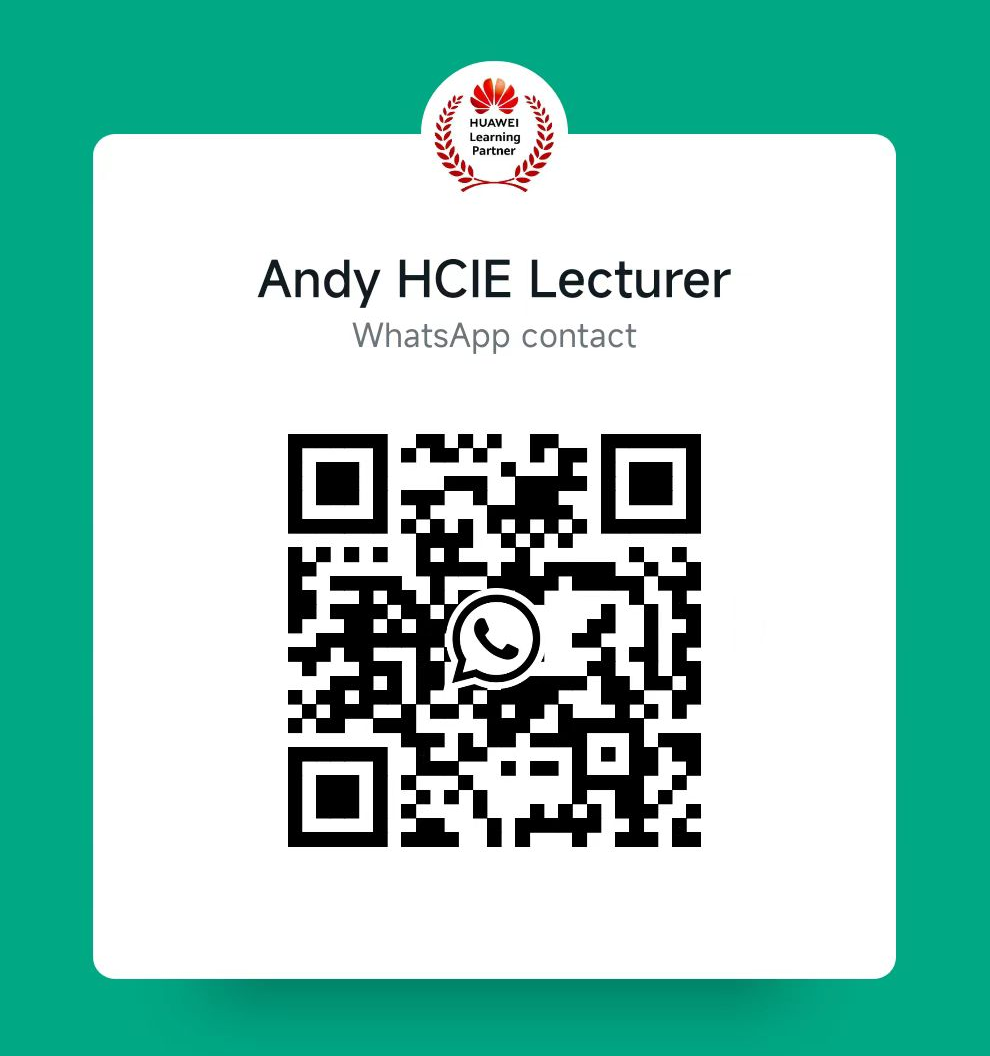
Hot article
-
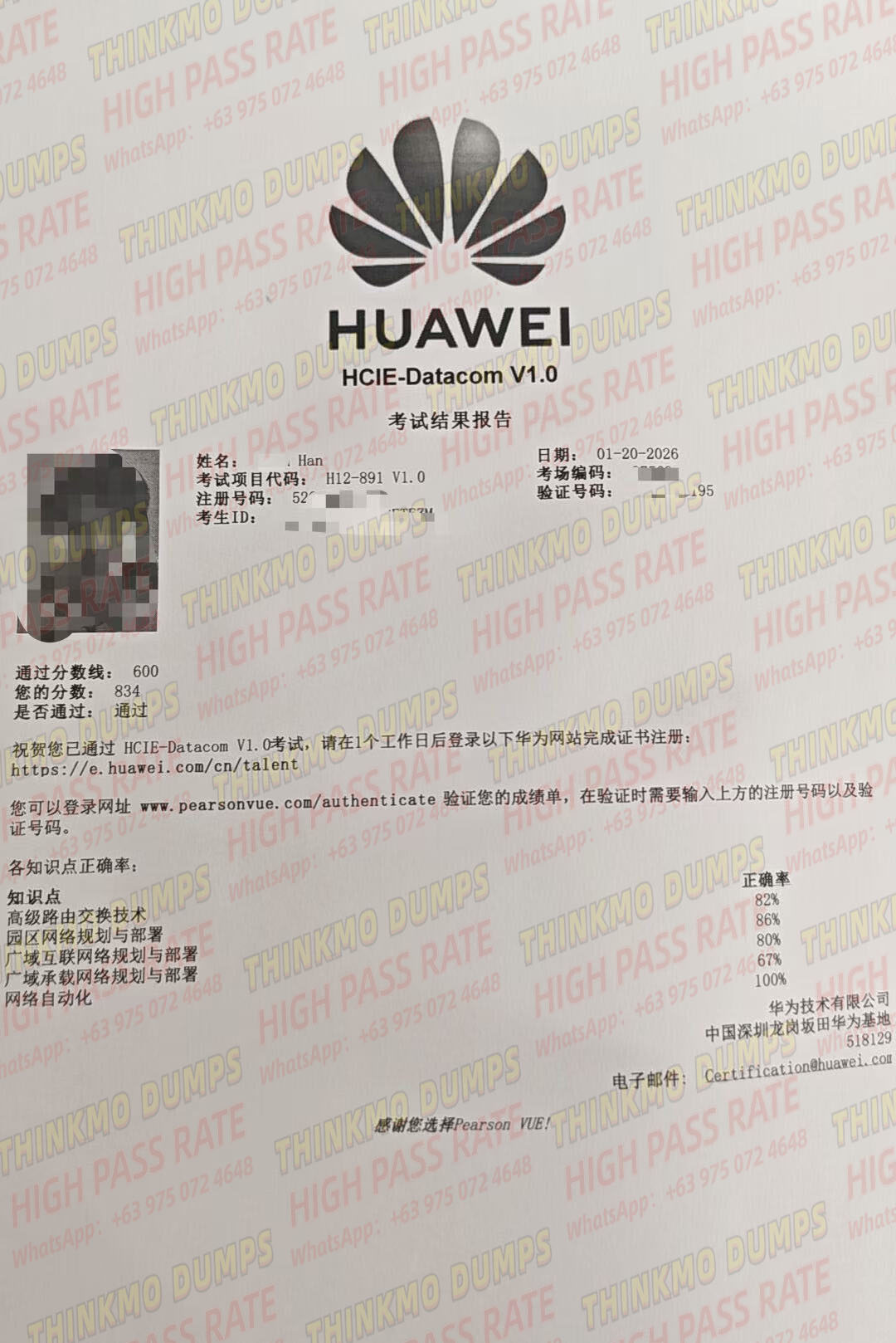 1
1 1. ThinkMo Precise Question Bank: Ace HCIE Written
上传:2026-01-23
-
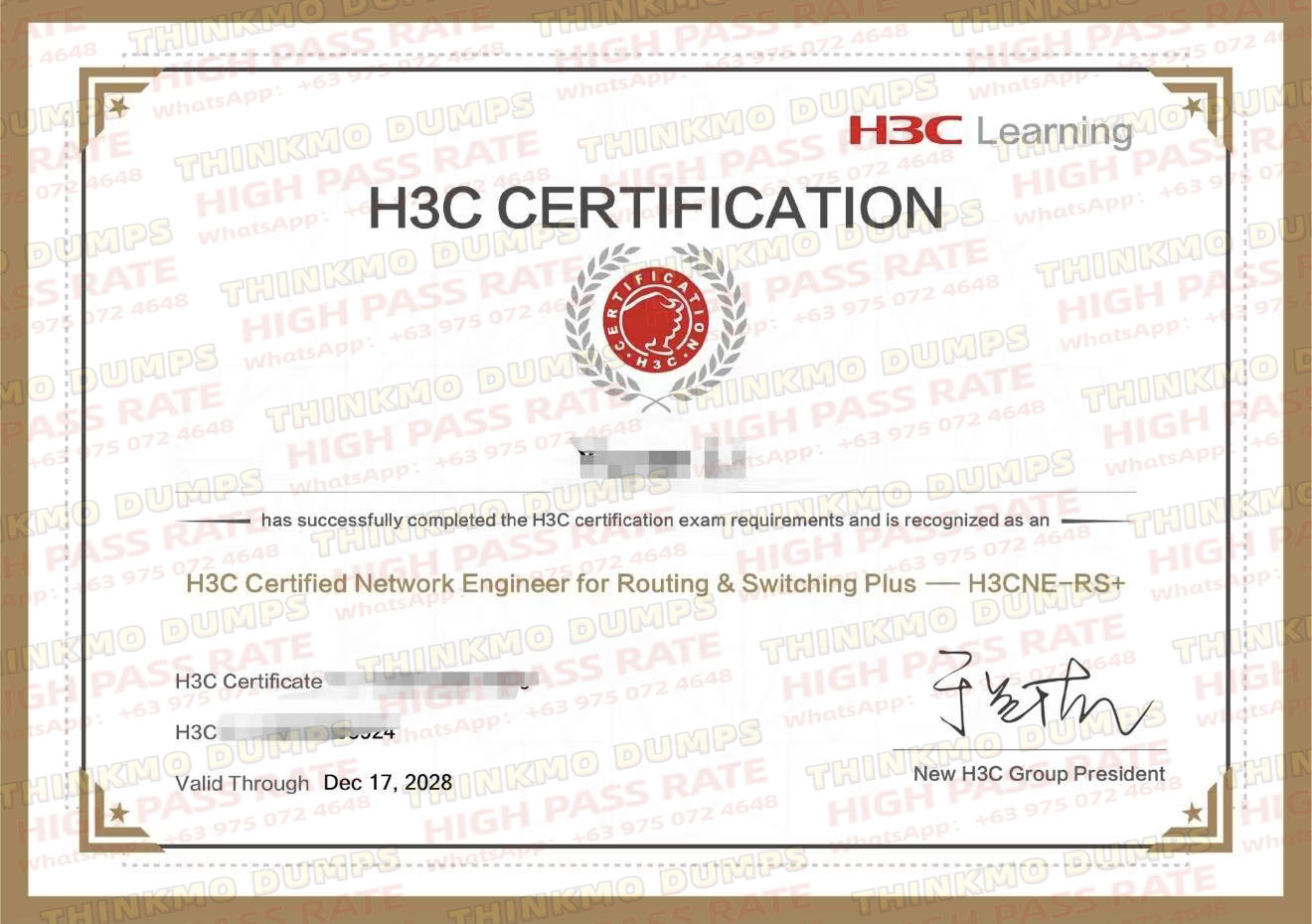 2
2 Triple H3CNE/H3CSE Passes | ThinkMo Christmas Succe
上传:2025-12-25
-
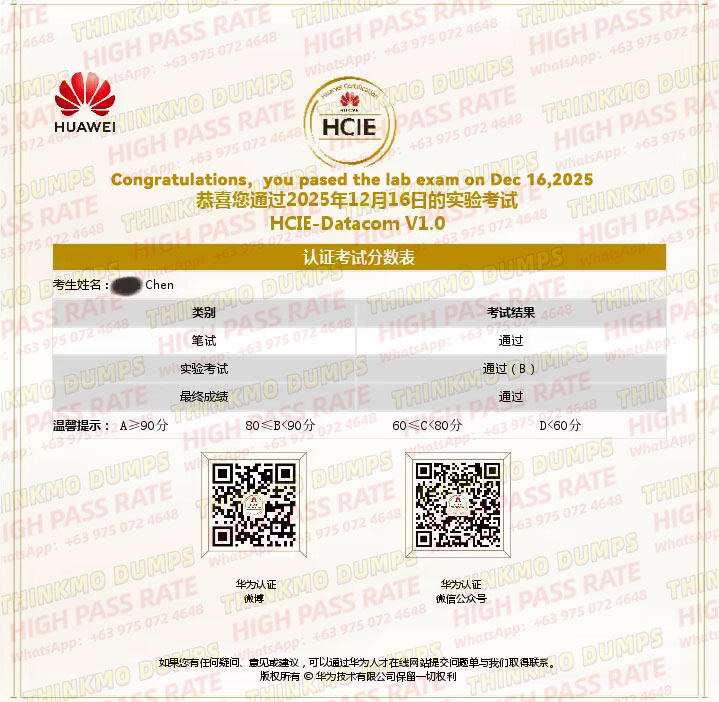 3
3 Success Streak: ThinkMo’s Dec HCIE-Datacom Win
上传:2025-12-24
-
 4
4 ThinkMo Guide: Cisco & Huawei Certification Com
上传:2025-12-22
-
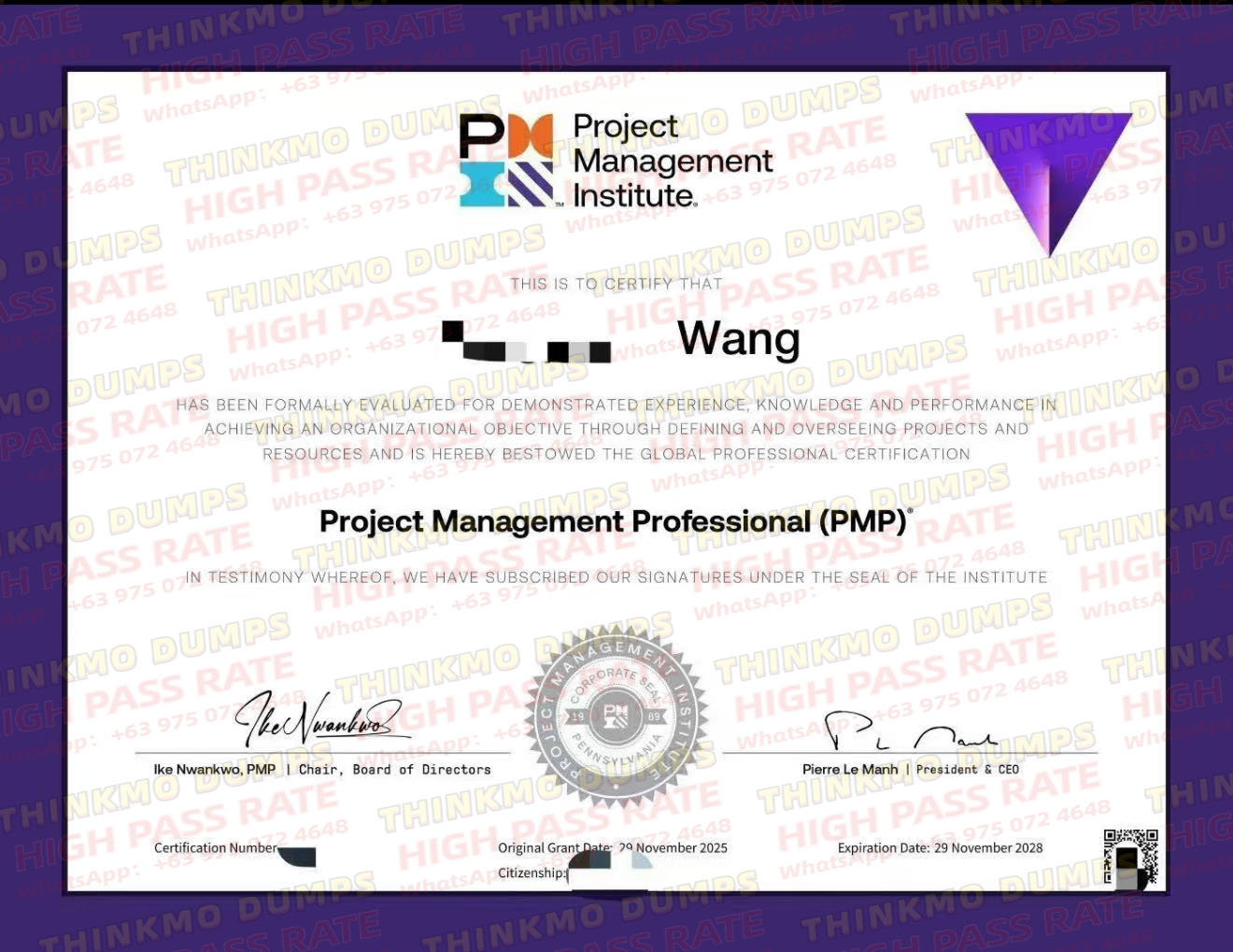 5
5 Pass CCIE/CKA Exams with ThinkMo’s Top Question B
上传:2025-12-19








